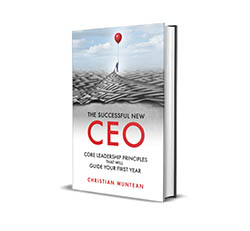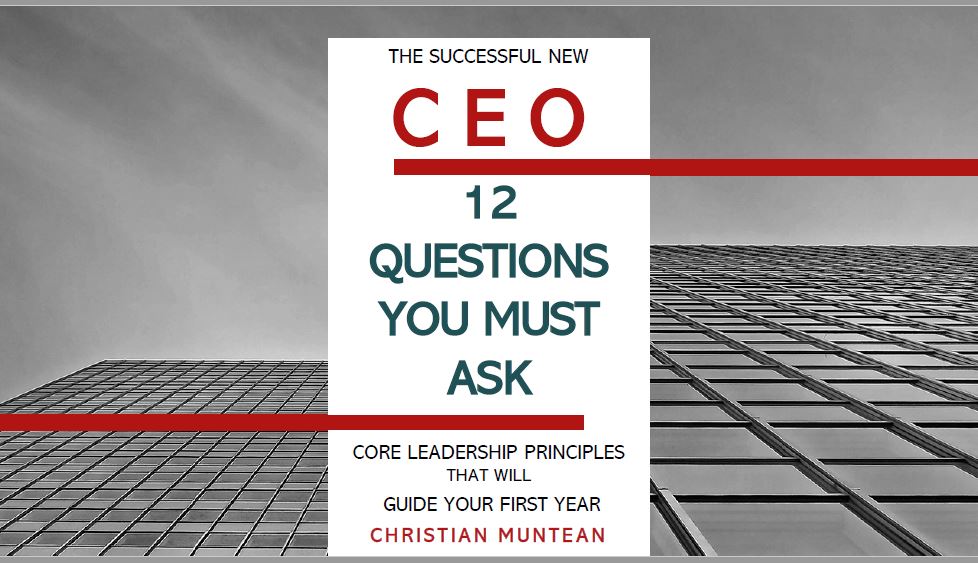Being Purposeful in These Three Areas Will Reap Tremendous Rewards

My regular readers know I practice Brazilian Jiu-Jitsu (BJJ). At this point, I’ve been practicing for five years.
Recently, I was training with someone who is much better than myself. He’s a small guy. I easily outweigh him by 50 lbs. Despite this, he can still tie me up in knots.
He’s very technical and purposeful with all of his movements.
After beating me yet again, he asked, “Why didn’t you try (a specific move)? I left myself open so you could.”
I never saw it. Not only that, I had felt constantly attacked and under pressure. I wasn’t surprised that he beat me. But I was surprised that he felt so comfortable beating me that he was intentionally leaving opportunities for me.
I’m growing in my ability to be purposeful. When I first began, I didn’t know anything. And BJJ is intimidating. I tried to overcome my lack of knowledge and feeling intimidated with hard work. Enthusiastic effort.
It kind of helped. I could overwhelm newer or smaller people. More experienced opponents (sometimes) needed to work a little bit to beat me.
But mostly, it just made me feel better. It didn’t really make me better.
Over the years, I’ve learned to slow down and be intentional. The more that I’ve done that, the better I’ve performed.
This isn’t just true for BJJ. It’s also true in our careers. Most of my clients are very hard workers. Many of them are in professions that lionize raw effort. Many have learned to try to “outwork” the competition.
Because hard work does make some contribution to results, it is easy for many to think it is the only thing they need to do.
But in far too many cases, the results don’t live up to the effort.
Here’s My Point:
Hard work is what beginners do. It’s a rookie move.
Intentional, purposeful work is what the experts do.
Experts still put in the effort. They cultivate the right mindset, focus on growth, and pay attention to how they execute. They focus their efforts on doing productive things in productive ways.
Experts don’t confuse hard work for results.
Being Intentional in These Three Areas Will Reap Tremendous Rewards: Mindset, Growth, Execution
Mindset: Your mindset is your way of interpreting and reacting to the world around you. Mindsets are taught or learned over years of experience or through sudden, usually intensely emotional, events. They help us explain what is going on around us. They provide a sense of control or excuse us when we aren’t taking control.
Mindsets are “fixed” or hardwired in us. We usually don’t think about them or even notice them. They just are.
But not all of our mindsets serve us well. And if they aren’t, we can change them.
Common mindsets that I often see among my clients are:
- Scarcity mindsets – the belief that there isn’t or won’t be enough. This is in contrast to an Abundance mindset – or the belief that there can always be enough.
- The Fixed mindset – the belief that our relationships, abilities, or opportunities are fated or predetermined. This is in contrast to a Growth mindset – the belief that relationships, abilities, or opportunities can be grown, changed, or expanded.
- A Comparative mindset – the belief that someone’s value or worth comes from how they stack up against someone else. It often manifests as pride, greed, or envy. It’s in contrast to mindsets such as Gratitude or Service.
There are many other mindsets as well. But only looking at these, it’s easy to see how a sense of Scarcity, combined with a Fixed mindset that things can’t change (especially not for the better) driven by an impulse to Compare yourself to others – can be crazy-making.
Explore the mindsets that control you. They were developed for a reason. At one point in your life they may have even served you, or the people you learned them from, well. But chances are that some mindsets are now holding you back.
Growth: Many leaders relate to their workplaces mechanically instead of organically. Teams take time to build and mature. They need to be fed, watered, pruned, and nurtured.
Many senior leaders struggle with how much of their time is taken up with “people issues”. That’s understandable. But the more “senior” of a leader you are – the more your job really is about leading people.
You can’t just “bolt on” a group of high performers, or fix morale issues with a retreat, or cultural issues through awareness workshops.
This can tie back to the Fixed vs Growth mindset. Many leaders tend to see teams as “good” or “bad”. Instead, they can do better by asking, “what should we do to become who we want to be?”
When leaders become intentional about nurturing growth, something magical happens. Their people, their teams, and their organizations grow.
Execution: When leaders pay attention to how they, or their teams, execute, they tend to improve performance. For example, many of my clients are in construction. For many types of construction, it’s understood that a profit margin of 4%-6% is normal.
I’ve been told by some that it would be unwise to even consider more. The leaders who tell me this appear not to consider execution as something they have control over. Each project is about estimating and bidding well – execution and profitability are almost treated as a roll of the dice.
I have clients achieving margins of over 20%. Same industries. Sometimes with the same clients. This is simply because they learn to pay attention to execution – whether in contracting or planning or logistics or safety or so on. They make their margins by being more intentional and precise in how they work.
It seems obvious. And most leaders would reactively say, “Of course I do this!” But it’s easy to let attention to execution become a little lazy. Particularly if we are content with the current level of results.
Unfortunately, this means economic hard times are your primary driver to begin thinking about how to do things better. Hard times are never the best time.
What Do You Need to Focus On?
All of the very successful people I know, who maintain their success, actively and constantly work on their own mindset.
They are intentional about growing themselves and those around them.
They pay attention to how they execute.
As a result, they learn to accomplish much more with less effort.
You can too.
- What is one mindset that you feel you need to jettison or adopt?
- What one area of growth for your team would produce the greatest results?
- What is one area of execution that could be improved?
- How will you go about doing these things?
- What help do you need?
Considering the coming year – your answers to these questions could be the difference that makes the difference.
Take good care,
Christian
Free Leadership Resources
Whether you are a new CEO, thinking of succession or exit, or wanting to strengthen your leadership and your team, I’ve got resources to help:
Enhancing your leadership skills
Are you interested in learning more about becoming a successful CEO? If so, get a free copy of my book The Successful New CEO. Not a new CEO? I’ve been told by “old hands” that they felt any CEO should read this. So, click here to get your copy today.
by “old hands” that they felt any CEO should read this. So, click here to get your copy today.
There are 𝟭𝟮 𝗰𝗿𝗶𝘁𝗶𝗰𝗮𝗹 𝗾𝘂𝗲𝘀𝘁𝗶𝗼𝗻𝘀 to ask before accepting a new CEO position. Do you know what they are? Instantly download my free e-book here.
𝗧𝗵𝗲 𝗕𝗲𝘀𝘁 𝗧𝗶𝗺𝗲 𝘁𝗼 𝗖𝗿𝗲𝗮𝘁𝗲 𝗔𝗻 𝗘𝗺𝗲𝗿𝗴𝗲𝗻𝗰𝘆 𝗦𝘂𝗰𝗰𝗲𝘀𝘀𝗶𝗼𝗻 𝗣𝗹𝗮𝗻 𝗶𝘀 𝘽𝙚𝙛𝙤𝙧𝙚 𝗬𝗼𝘂 𝗡𝗲𝗲𝗱 𝗜𝘁.
Be prepared for a smooth transition in the event of an unplanned emergency succession. My guide will show you step-by-step how to devise your own plan.
Let’s connect.
I’m passionate about helping leaders to create workplaces they love going to and increasing the value of the services they offer. My results-oriented approach is tailored to each client’s specific situation and needs. As a leadership coach, I have developed a wealth of resources to help you and your team grow and become stronger.
Weekly Newsletter – sign up to receive my weekly articles addressing critical leadership challenges and issues.
The Leadership Coach Podcast – In my podcast, we explore effective, high-impact, and enjoyable leadership. Subscribe.
Find the value of your company with my free assessment tool: The Value Builder System
The Value Builder System™ is a 13-minute online questionnaire that evaluates your business on the eight factors that contribute more to its attractiveness and value. These factors are scored on a scale of 1-100. Businesses that score over 80 are likely to command 70%-100% higher value than others.
Opportunities
Executive and Leadership Coaching: Do you feel overwhelmed? Are you not getting the results you expect from the effort you are putting in? Do you find yourself facing similar challenges time and time again? Would you like to change specific ways of relating or reacting? If you would like to experience predictable, measurable growth Contact me.
Profitable Exit Strategy Workshop: Are you a business owner or partner? Over 55? Starting to think about exiting your business or active management in the next 3-5 years?
- Curious about what your business might be worth?
- Would you like to discover the specific steps you need to take to increase its value and become highly attractive to a buyer?
- Are you planning on handing it over to family or employees and you want to ensure long-term success?
If so, contact me now
Categories
Get Christian’s Newest Book: Train to Lead

Download my free 10-page eBook:
How To Accomplish More Without Doing More:
Eight Proven Strategies To Change Your Life
Discover how to save eight hours during your workweek-even if you're too busy to even think about it. The resource every maxed out executive needs.

